I learned a lot from this book.
I learned a lot from this book.
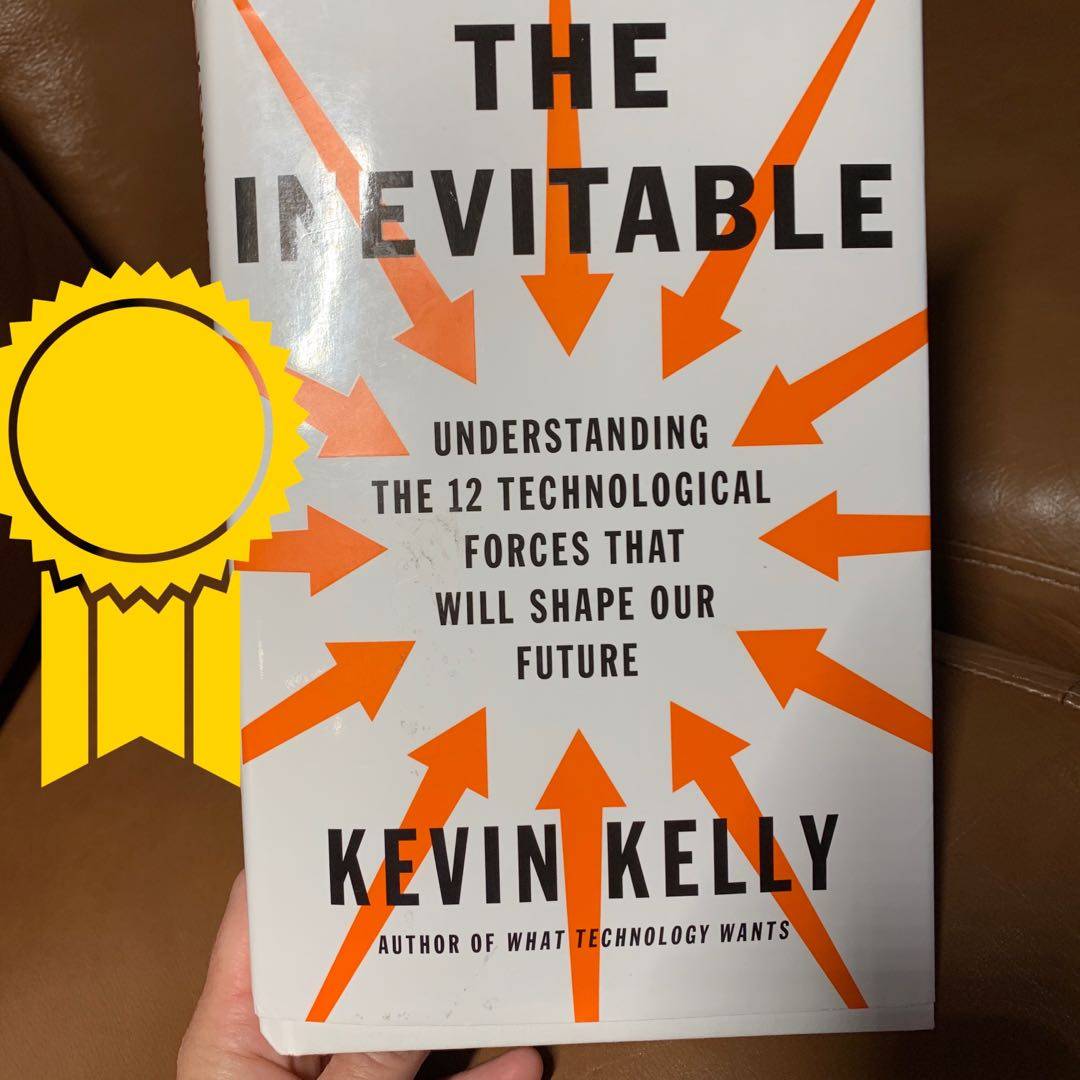
Anything that can be shared can be shared better, faster, easier, longer, and in 1 million more ways than we currently realize. At this point in our history sharing something that has not been shared before or in a new way is the surest way to increase the value.
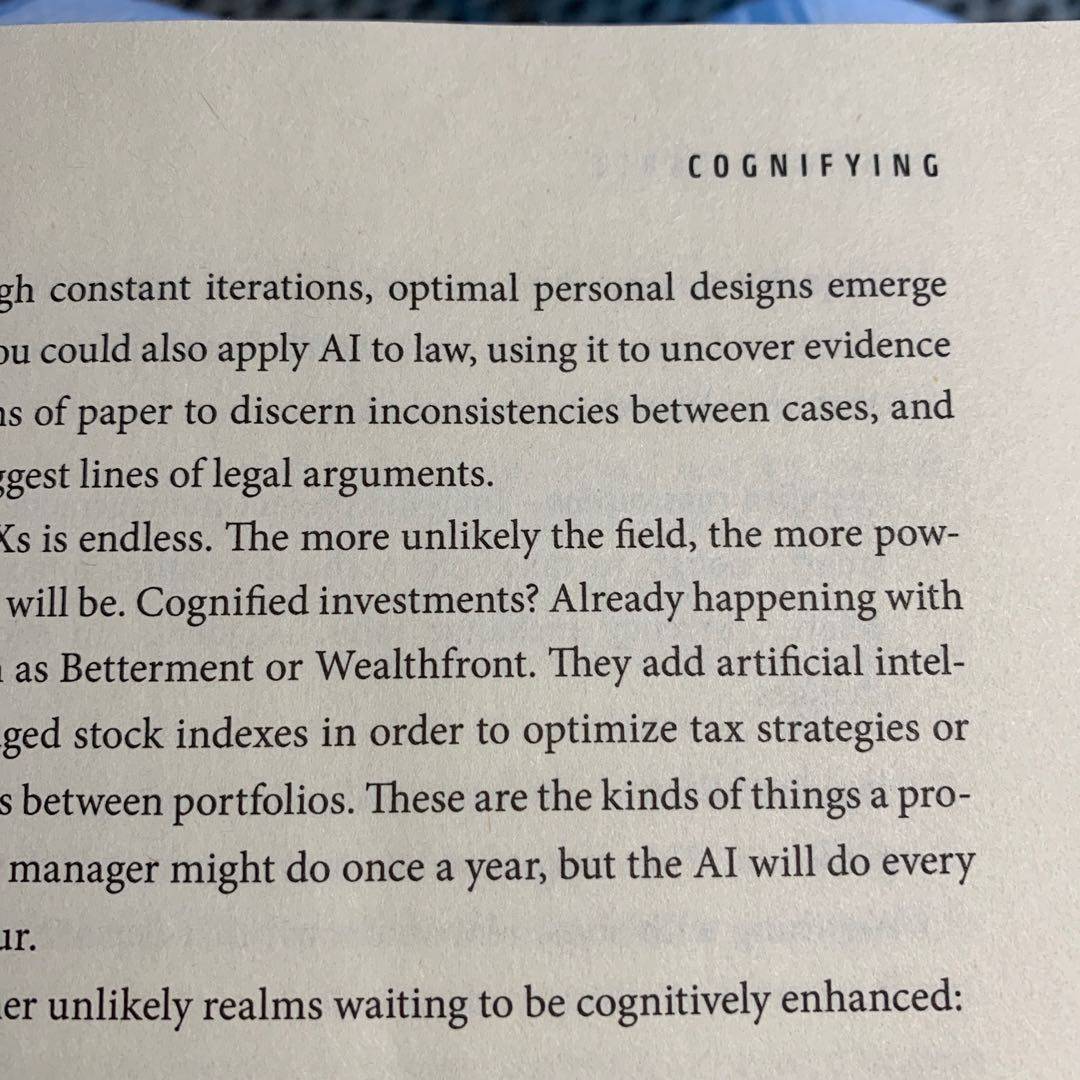
Cognifying- jobs robots can do better , jobs humans can‘t do, jobs we didn‘t know we wanted done jobs humans can do at first,
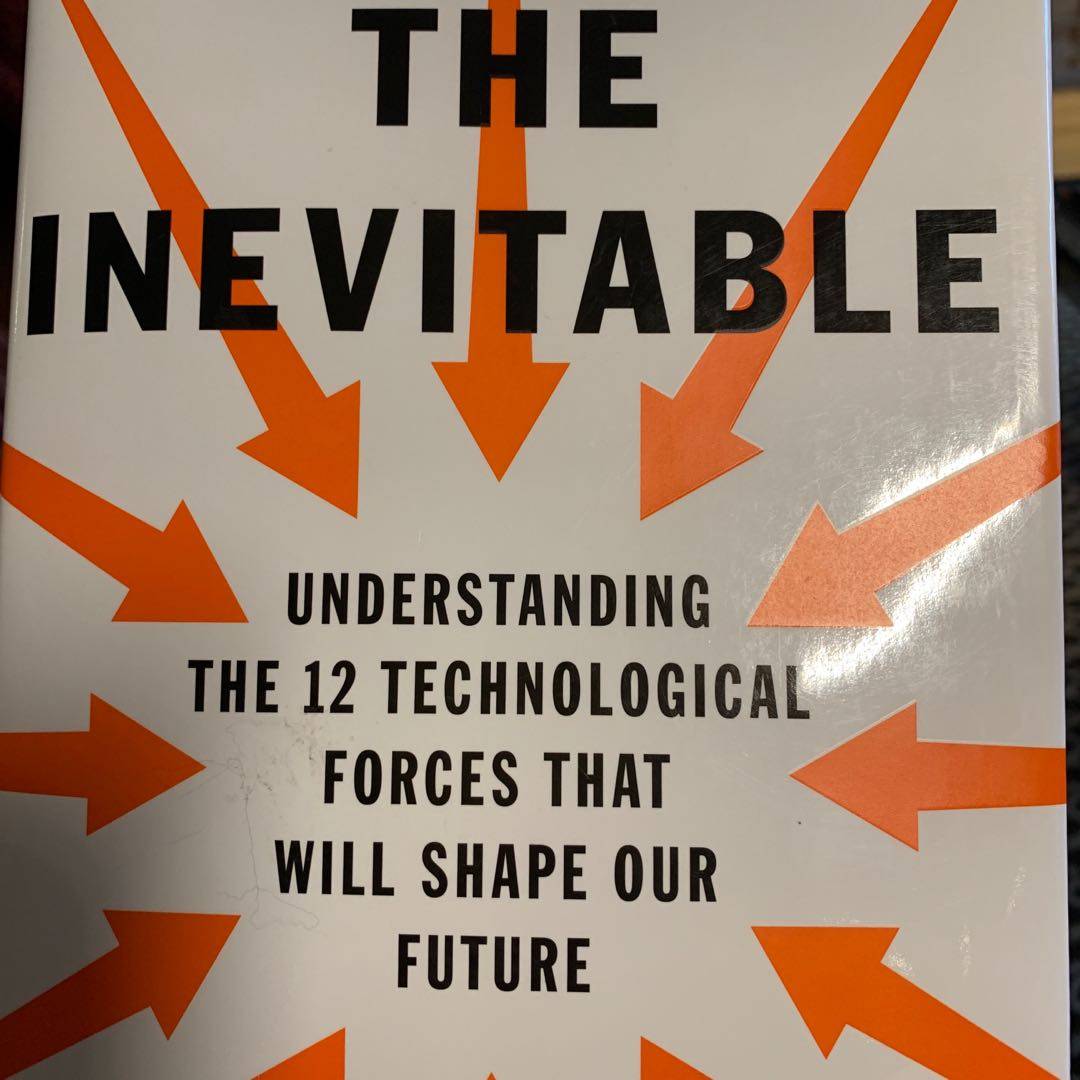
Becoming, cognifying,flowing,screening,accessing sharing read so far. Feeling encouraged by the realization that we are actually reading and writing more on the www age.
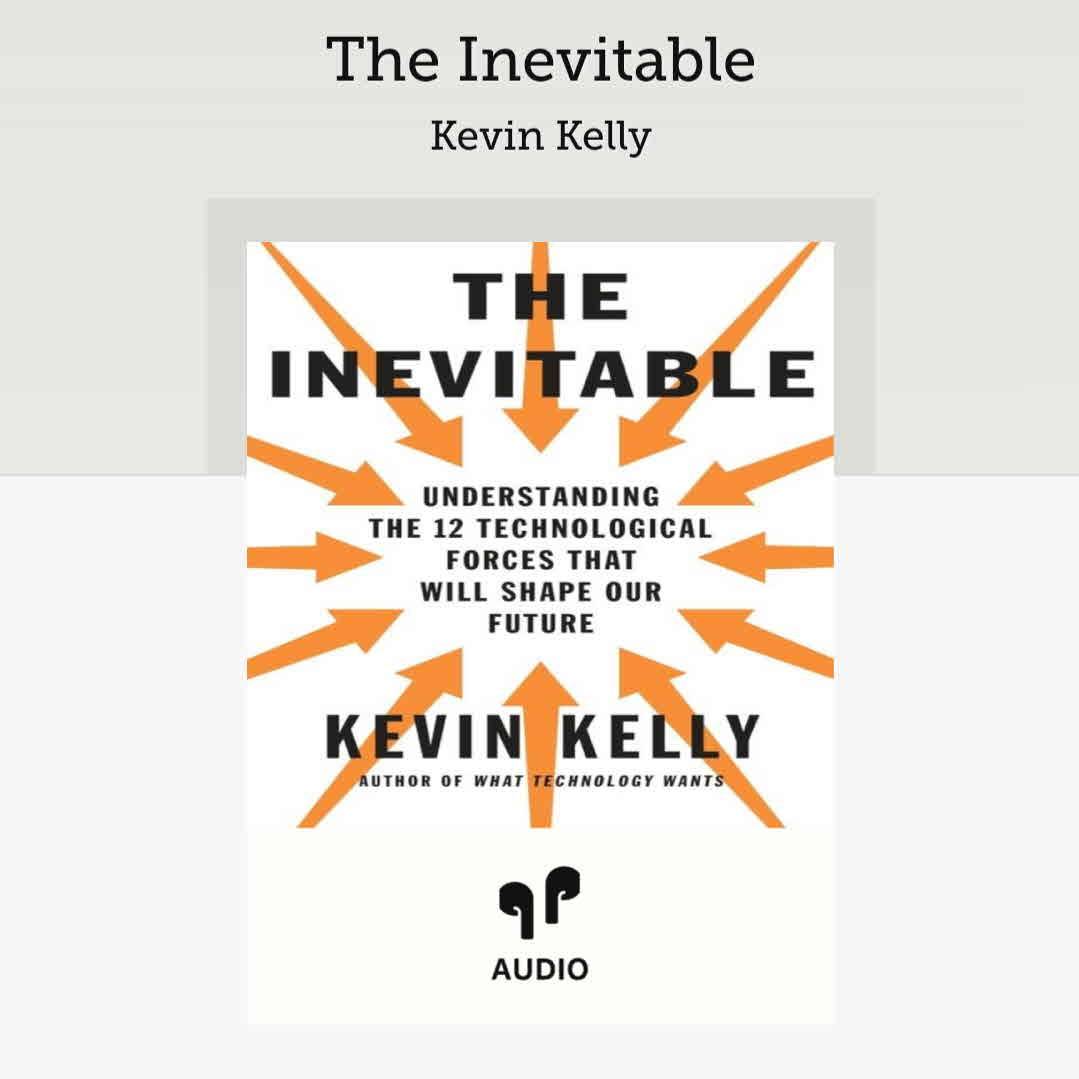
Long review extends into the comments.
Overall, this is a fair examination of current technologies (as of 2015) made readily accessible to non technical audiences, an important step. The positive, upbeat tone does a lot to temper so much of the hand wringing we're subjected to these days, especially in regards to AI. I really liked how Kelly reminds readers of the same panicked reactions when technology reached farming and transportation.
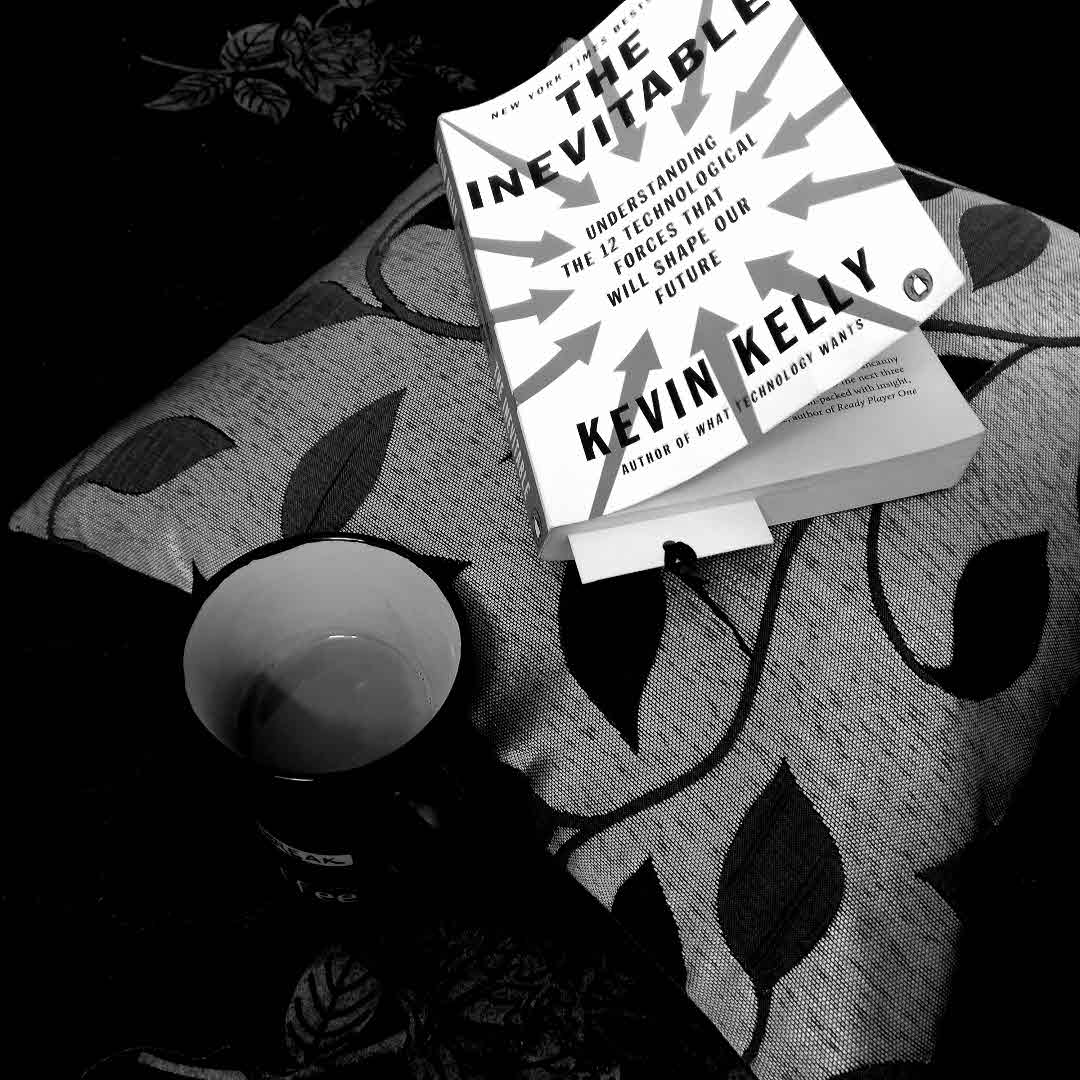
Hot tea and an exciting book... The perfect evening. 😁
The only things that are increasing in cost while everything else heads to zero are human experiences—which cannot be copied.
Because of technology everything we make is always in the process of becoming. Every kind of thing is becoming something else, while it churns from “might” to “is.” All is flux. Nothing is finished. Nothing is done. This never-ending change is the pivotal axis of the modern world.
Ironically, the best questions are not questions that lead to answers, because answers are on their way to becoming cheap and plentiful. A good question is worth a million good answers.
Massive tracking and total surveillance is here to stay.
There will be a severe backlash against this drift from the usual suspects, but increased sharing is inevitable. There is an honest argument over what to call it, but the technologies of sharing have only begun. On my imgainary Sharing Meter Index we are still at 2 out of 10. There is a whole list of subjects that experts once believed we modern humans would not share, but it turns out that with the right technology..., we‘ll share everything.
Amazon‘s rise was a surprise not because it became an “everything store” (not hard to imagine), but because Amazon‘s customers (me and you) rushed to write the reviews that made the site‘s long-tail selection usable.
Ironically, in an age of instant global connection, my certainty about anything has decreased. Rather than receiving truth from an authority, I am reduced to assembling my own certainty from the liquid stream of facts flowing through the web. Truth, with a capital T, becomes truths, plural. I have to sort the truths not just about things I care about, but about anything I touch, including areas about which I can‘t possibly have direct knowledge.
My father sometimes asks me if I feel untethered and irresponsible not owning anything. I tell him I feel the opposite: I feel a deep connection to the primeval. I feel like an ancient hunter-gatherer who owns nothing as he wends his way through the complexities of nature, conjuring up a tool just in time for its use and then leaving it behind as he moves on...Accessing rather than owning keeps me agile and fresh, ready for whatever is next.
For better or worse, our lives are accelerating, and the only speed fast enough is instant.
In an information-rich world, the wealth of information means a dearth of something else: a scarcity of whatever it is that information consumes. What information consumes is rather obvious: it consumes the attention of its recipients. Hence a wealth of information creates a poverty of attention.” Simon‘s insight is often reduced to “In a world of abundance, the only scarcity is human attention.”
If Jefferson gave you his house at Monticello, you‘d have his house and he wouldn‘t. But if he gave you an idea, you‘d have the idea and he‘d still have the idea. That weirdness is the source of our uncertainty about intellectual property today.
Uber, the world‘s largest taxi company, owns no vehicles. Facebook, the world‘s most popular media owner, creates no content. Alibaba, the most valuable retailer, has no inventory. And Airbnb, the world‘s largest accommodation provider, owns no real estate. Something interesting is happening.
Editorship and expertise are like vitamins for the food. You don‘t need much of them, just a trace even for a large body. Too much will be toxic, or just flushed away.
Our lives are already significantly more complex than even 5 years ago. We need to pay attention to far more sources in order to do our jobs, to learn, to parent...The number of factors and possibilities we have to attend to rises each year almost exponentially. Thus our seemingly permanently distracted state and our endless flitting from one thing to another is not a sign of disaster, but is a necessary adaptation to this current environment.
The link and the tag may be two of the most important inventions of the last 50 years.
Over the next 3 decades, scholars and fans, aided by computational algorithms, will knit together the books of the world into a single networked literature. A reader will be able to generate a social graph of an idea...for any notion in the library. We‘ll come to understand that no work, no idea stands alone, but that all good, true, and beautiful things are ecosystems of intertwined parts and related entities, past and present.
Not only did we fail to imagine what the web would become, we still don‘t see it today. We are oblivious to the miracle it has blossomed into. Twenty years after its birth the immense scope of the web is hard to fathom. The total number of web pages, including those that are dynamically created upon request, exceeds 60 trillion. That‘s almost 10,000 pages per person alive. And this entire cornucopia has been created in less than 8,000 days.
While anonymity can be used to protect heroes, it is far more commonly used as a way to escape responsibility. That‘s why most of the brutal harassment on Twitter, Yik Yak, Reddit, and other sites is delivered anonymously. A lack of responsibility unleashes the worst in us.
We‘ll spend the next 3 decades...in a permanent identity crisis, continually asking ourselves what humans are good for. If we aren‘t unique toolmakers, or artists, or moral ethicists, then what, if anything, makes us special? In the grandest irony of all, the greatest benefit of an everyday, utilitarian AI will not be increased productivity or ...The greatest benefit... is that AIs will help define humanity. We need AIs to tell us who we are.
If today‘s social media has taught us anything about ourselves as a species, it is that the human impulse to share overwhelms the human impulse for privacy. This has surprised the experts. So far, at every juncture that offers a choice, we‘ve tilted, on average, toward more sharing, more disclosure, more transparency. I would sum it up like this: Vanity trumps privacy.
This is not a race against the machines. If we race against them, we lose. This is a race with the machines. You‘ll be paid in the future based on how well you work with robots. Ninety percent of your coworkers will be unseen machines.
Questioning is simply more powerful than answering.
The kind of intelligent book club discussion as now happens on the book sharing site Goodreads might follow the book itself and become more deeply embedded into the book via hyperlinks. So when a person cites a particular passage, a two-way link connects the comment to the passage and the passage to the comment. Even a minor good work could accumulate a wiki-like set of critical comments tightly bound to the actual text.